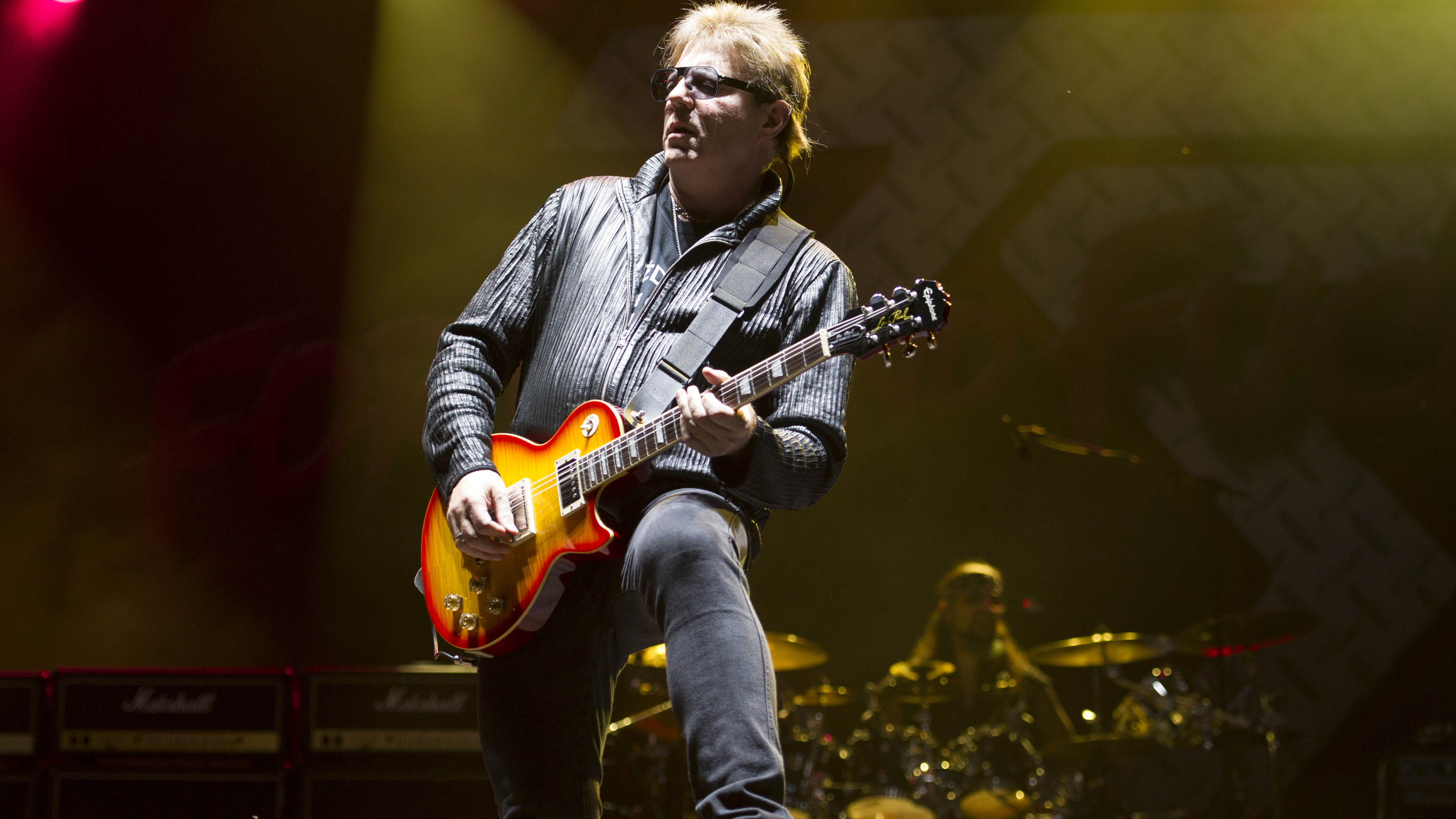
Want all the hottest music and gear news, reviews, deals, features and more, direct to your inbox? Sign up here.
You are now subscribed
Your newsletter sign-up was successful
You can get a lot of electric guitar for less money than ever, as the impending Black Friday guitar deals will prove again, but it's always good to hear a pro musician flying the flag for cheaper electric guitars onstage. Twisted Sister guitarist Jay Jay French is one who owns an enviable vintage guitar collection, but on Twister Sister's final tours before bowing out in 2016 he'd often use Epiphone Les Pauls onstage. In a new interview with Ultimate Guitar he explains why.
"Well, if we're talking about the technicalities of a guitar sound – first, let me say: when you're playing through six-stacks on stage at 120 decibels, the differences between pickups is not all that extreme," notes Jay Jay.
If the neck isn't great to me, I don't care about the rest of the guitar
"So, when it comes time for me to buy a guitar, the first thing that I do when I pick up a guitar is to feel the neck," he notes. "And if the neck isn't great to me, I don't care about the rest of the guitar. I couldn't care less about how it sounds, I couldn't care less about how it looks.
"The neck has to be great, and if the neck is great, my attitude is, I'll figure the rest of it out if I have to. This is my personal view."
And while he left his prized vintage Gibson Les Paul guitars safetly at home, it's the Epiphones he took on tour.
"I take out Epiphones because I get them to about 98% of what I need," reveals French, and then, if they're stolen or my road crew drops one, I'm fine with it because they're $500 new, and they give 'em to me for free.
"I wouldn't play something that was bad. So, let me be really clear about this - they play tremendously. Do I do work on them? Yes. I have the pickups replaced, I'll put better pickups in."
Want all the hottest music and gear news, reviews, deals, features and more, direct to your inbox? Sign up here.
And this is when things will get somewhat debatable for some. Because French explains he has the frets dressed by a PLEK machine (average cost around $200) or he has a tech work on them before he goes on tour. So factor in the upgrade of new pickups and that setup, it's a few hundred dollars extra on top of the Epiphone guitar cost.
Granted, these are guitars that had to perform on big stages, and the outlay is still not Gibson levels. But there's a practical reason for French choosing Epiphone too.
"So, I take all these Epiphones with me on the tour, love 'em, and at the end of the tour, I give 'em away, or I sign them for charity," reveals French.
I have bought custom-made Gibson custom shop guitars that were not built as well as an Epiphone has been
The guitarist also used a higher end Japanese-made Epiphone Elitist ES-335 on record. "When we recorded the album Twisted Christmas, I brought all the guitars in to get a guitar sound and the guitar that was picked by the engineers was the Epiphone Elitist ," he tells Epiphone in the video interview above.
The key for French is having the experience to know the true value of an electric guitar to you as a player.
"To be fair to Epiphone, ," he adds later in the Ultimate Guitar interview. "Like, they screwed up here, they screwed up there. Now, a friend of mine, who was one of the custom guitar builders at Fender, right, made these ridiculously expensive custom shop Fender guitars for $10 000.
"I asked him what he thought about Mexican Strats. He told me, he played some Mexican Strats that kicked the crap out of the Custom Shop Fender. So, the question really comes down to how good a guitar player are you that you could know the difference?"
Read the full interview at Ultimate Guitar. Jay Jay French's new book, Twisted Business: Lessons from My Life In Rock N' Roll is out now.

Rob is the Reviews Editor for GuitarWorld.com and MusicRadar guitars, so spends most of his waking hours (and beyond) thinking about and trying the latest gear while making sure our reviews team is giving you thorough and honest tests of it. He's worked for guitar mags and sites as a writer and editor for nearly 20 years but still winces at the thought of restringing anything with a Floyd Rose.